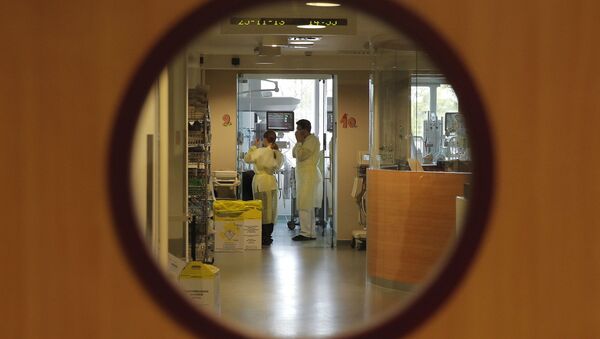The law, which came into force on June 17, 2016, permits adults whose natural death is reasonably foreseeable to undergo the procedure.
However, many fear that doctors could abuse their power and indulge in the involuntary deaths of patients who are not terminally ill.
Kate Kelly, editor of a volunteer organization called "Stop Hospital Euthanasia" and a Board Member of the organization "Choice is an illusion," which fights assisted suicide and euthanasia legalization efforts, explained to Sputnik Radio that her conclusion is that assisted suicide and euthanasia are simply cheaper than medical treatment.
"We do have health care in Canada that is state operated and we pay heavy taxes for that. But there seems to be never enough money. There is a study that assisted suicide and euthanasia can save Canada 139 million dollars a year. So yes, it is a matter of policy," she told Sputnik.
Kate's Mother Was Involuntarily Killed by a Young Doctor
She then shared her personal story: how her mother, who had suffered a mild stroke, was admitted to 'comfort care', where she was starved and dehydrated while being administered massive doses of morphine.
"Unfortunately, I did not have a Power of Attorney, I had no legal rights whatsoever to do anything about my mother's death. There was another person who was appointed, and once it happens in Canada, the other relatives have no power," she explained.
"So, the doctor was within his legal right to do what he did, leaving a human being without water and nutrients. And my mother was not dying, she had a mild stroke; 99 percent of people recover from mild strokes, it is very-very rare that a person dies from it," she said.
But the doctor, who had never seen her mother before, stated that she would be gone in 24 hours.
"I sat with my mother for six days and nights while she clutched my hand until she finally died of dehydration and starvation. And this was before assisted suicide became legal. The target was: my mother was old, she had Alzheimer's. One of the nurses in the nursing home where she was, the care facility, stated that my mother was not suffering, that she had seen over 200 people die this way, that my mother was comfortable. But she was not comfortable," Kate Kelly said.
She then explained that her mother would have needed more treatment if she recovered from her stroke. It was cheaper. More spaces are needed in Canada's senior's care homes, in nursing homes and hospitals. In a way, it is much more economically sensible to use assisted suicide and euthanasia, she said.
The nursing home where her mother stayed had registered nurses, qualified to give an IV (intravenous), which stroke patients sometimes need, to have water through an IV saline solution, she said. However there is no equipment in the nursing home and therefore the patient has to go to a hospital.
"When I wanted to take my mother to hospital, to call an ambulance and take her to hospital, when she had this stroke, I was told by a nurse that I could not do that because the doctor had not decided to allow her to go to a hospital," she explained.
When she said that she would still take her, she was told that if she did it, the employees would call the police and have her arrested for practicing medicine without a license. She had no right to do that because she did not have a Power of Attorney and she was not a doctor.
Kate Kelly said that what her organization is now trying to do is prevent tragic cases similar to that of her mother and advocate against assisted suicide. They are trying to educate people to not let this happen, trying to stop and overturn these laws, and challenge them in courts.
There seems to be a worldwide attempt to implement euthanasia, she said, and her duty is to prevent other countries from making the mistakes her home country had already made.





